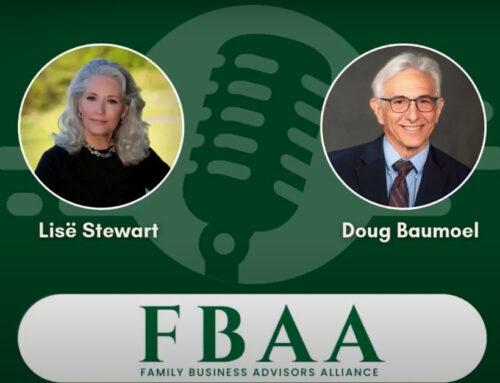First step, understanding systemic conflict
Why is conflict in family enterprise often so extreme and intractable? It is extreme, because roles in a family business, or access to family wealth, are not as negotiable as these issues would be in a non-family enterprise. This is true in large part because family members tend to take their role in the business very seriously. The disagreement is about more than just a job or money, it’s about what these signify to the stakeholder. Dismissing conflict in a family enterprise as greed is too easy. More often, stakeholders are fighting about very real emotional needs, such as self-purpose and personal identity.
Whether they are motivated by the desire for financial security, access to society’s upper ranks, acknowledgment by the family or the resources to be all they can be, stakeholders go to great lengths to preserve (or advance) the status quo when their position is threatened. When coupled with the highly emotional system that is family, the enterprise becomes a crucible in which extreme conflict can develop.
Conflict is complicated
Conflict in a family enterprise is often multilateral in nature and built into the overlapping systems that make up the enterprise (ownership, business, governance and family). Attempts at individual dispute resolution rarely have more than a temporary impact and can actually make matters worse. Simply applying a “best practice” to the individual systems often fails to produce long-lasting outcomes.
Managing conflict in a family enterprise is particularly challenging because of the importance of the family relationships. Unlike civil disputes, in which the parties may battle and then walk away, enterprising families remain connected. Therefore, it is important to consider how the conflict will be managed, the impact of the settlement on the parties’ relationships going forward and how the other interconnected relationships will be affected.
Understanding systemic conflict
A systems approach to managing family enterprise conflict may be understood best by breaking conflict down into its component parts:
Historical impasse:
Families who work or own assets together bring their history with them into the enterprise. Often these histories are difficult—containing past hurts, betrayals and compromised trust buried under the happier experiences they would prefer to remember. As the dynamics of business challenge the family relationships, old feelings surface and give rise to active grudges and distrust.
Incompatible values:
Families breed a variety of personality types, each with their own talents, skills and values. Such divergent values may give rise to conflict when the stakeholders rely on each other in a business or shared wealth setting.
Differences in risk tolerance, frugality and work ethic as well as issues around substance abuse, personal ethics and even personality clash may lead to untenable working relationships and conflicting visions for the enterprise.
Or, simply put, family members may not like or respect each other (or each other’s spouses), but are forced by circumstances to work and own assets together.
Opposing goals:
Whether driven by different values, facts or needs, stakeholders’ visions for the enterprise may not always be aligned. As a result, decision making can become stalled, or worse.
The trigger:
Some families may have all the ingredients that underlie conflict but seek to avoid it at all costs. They remain stuck and unable to make timely decisions, potentially bringing about devastating effects on the business, the estate plan and the family. Active conflict, however, requires a trigger. For example, when a stake-holder exerts power in a manner perceived by others as arbitrary, without moral or legitimate authority, lacking factual basis or with malicious intent, active conflict is triggered.
Part 2 of this 2-part series covers:
Managing systemic conflict
- The development approach
- Collaborative teamwork
Article originally published in Family Business Magazine
Stay in the Know
Get our latest articles, tips, and insights delivered straight to your inbox.
Share this Insight, choose your platform!
About Us
Continuity Family Business Consulting is a leading advisory firm for enterprising families. Using a full suite of service capabilities, we help families prevent and manage the single greatest threat to family and business continuity: conflict. It is through this lens that we advise our clients and build customized strategies for succession planning, corporate governance, family governance, and more. We help families improve decision making, maximize potential and achieve continuity. To inquire, contact us.













